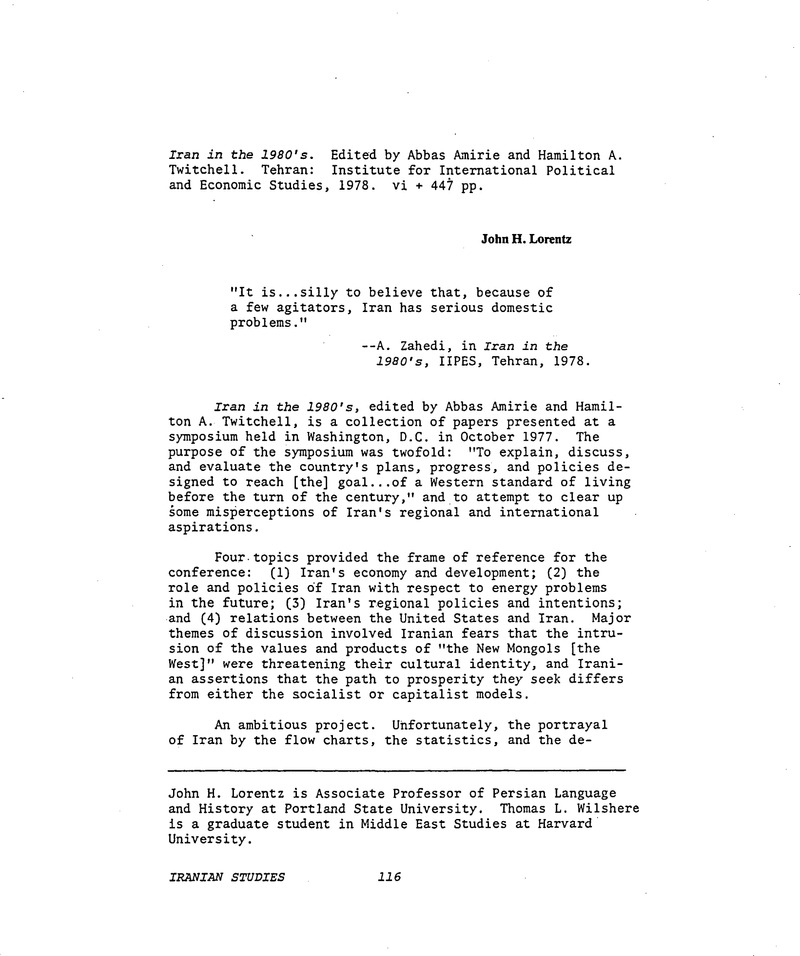No CrossRef data available.
Published online by Cambridge University Press: 01 January 2022

1. Land reform is explored in some detail in Vahidi's presentation, “A Profile of Iranian Agriculture.” While he maintains a hopeful attitude, his conclusion that the programs associated with the reform have had an “uncertain impact” raises serious doubts as to the validity of claims asserting that land reform works to provide the peasants with an improved “stake” in the system. For more information concerning the ambivalent effects of land reform, see, “The Impact of Land Reform on an Iranian Village,” by Donald Craig, in the Middle East Journal (Spring 1978), pp. 141-155.
2. We use the term “ominously” within the context of Hannah Arendt's discussion of the difference between the American Revolution and those revolutions following the French pattern. A revolution based on “freedom from want, from disease…(etc.)” (Amouzegar, p. 100), rather than on political freedom, tends unfortunately toward chiliastic leadership, demagoguery, mob passion, and its attendant violence and, ultimately, to dictatorship and terror. (Hannah Arendt, On Revolution, The Viking Press, 1975.)
3. In this regard, it might be noted that the book was published in Tehran under the auspices of the Institute for International Political and Economic Studies. Though presumably nonofficial, the ultimate source of funding for the IIPES was the Iranian government. And, given the political atmosphere of Iran at the time, inclusion of such questions in this volume would have been an even greater surprise than the lack of critical political analysis.
To send this article to your Kindle, first ensure no-reply@cambridge.org is added to your Approved Personal Document E-mail List under your Personal Document Settings on the Manage Your Content and Devices page of your Amazon account. Then enter the ‘name’ part of your Kindle email address below. Find out more about sending to your Kindle. Find out more about saving to your Kindle.
Note you can select to save to either the @free.kindle.com or @kindle.com variations. ‘@free.kindle.com’ emails are free but can only be saved to your device when it is connected to wi-fi. ‘@kindle.com’ emails can be delivered even when you are not connected to wi-fi, but note that service fees apply.
Find out more about the Kindle Personal Document Service.
To save this article to your Dropbox account, please select one or more formats and confirm that you agree to abide by our usage policies. If this is the first time you used this feature, you will be asked to authorise Cambridge Core to connect with your Dropbox account. Find out more about saving content to Dropbox.
To save this article to your Google Drive account, please select one or more formats and confirm that you agree to abide by our usage policies. If this is the first time you used this feature, you will be asked to authorise Cambridge Core to connect with your Google Drive account. Find out more about saving content to Google Drive.